“How do you help people who can’t even speak and express needs?”
In 1890 the Church of Jesus Christ of Latter Day Saints declared an end to polygamous marriage . 14 years later, in 1904, the president of the Church presented ‘the Second Manifesto’, a document formally stating that polygamous marriages would no longer be sanctioned by the church. Clearly this practice, which dated back to the Church’s founders, wasn’t going to go away easily and today is still practiced by some sects.
Plural marriage continues to cast a difficult shadow over Mormonism, particularly over women, and if you’re interested in its history (whether you’re a member of this Church or not) there’s no better resource to learn about it than the podcast Year of Polygamy with Lindsay Hansen Park. We’re so thrilled to have Lindsay Hansen Park joining us to share some of her insights and research.
Our Guest
Lindsay Hansen Park
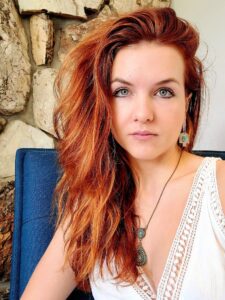
Lindsay Hansen Park (she/her) is an American Mormon feminist blogger, podcaster, and the Executive Director for the Salt Lake City-based non-profit Sunstone Education Foundation. She’s worked as a consultant and guest on several film projects including Hulu’s television series, Under the Banner of Heaven.
You can find her work at YearofPolygamy.com and Sunstone.org.
Polygamy and the Subaltern
Today I’m going to reflect on some of the things that I see in my work and the impact activism that I do. I’ve been an activist for about 15 years now. I started out in the Mormon feminist movement, which a lot of people think is a strange thing. They say you can’t be Mormon and be a feminist, but you can, because feminism shows up anywhere that there’s patriarchy. If we didn’t have patriarchy, we wouldn’t need feminism. It’s sort of a response to what we use as this umbrella term: patriarchy. And so we’re going to dig into that a little bit more today because I want to talk about a substrate of this patriarchal culture, which I think pairs hand in hand with patriarchy and that’s imperialism, colonization, colonialism—basically this idea that those who are in charge and those who have the most power, and that benefit the most from power structures in society, can be blinded to their own impact, the impact of their lifestyle, the impact of their greed, the impact of their wealth. And this is not a condemnation of wealth or success or power. It is just an explanation of how where we situate in these structures of power blinds us to the struggles and plights of other people.
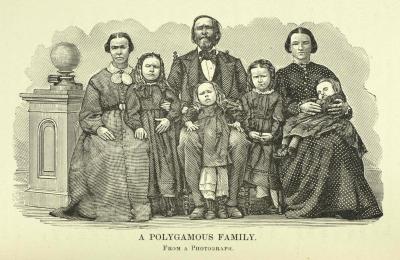
I know as a woman growing up in a patriarchal community, there were things that were structurally prohibited to me. And those within the power system were so used to that, that they couldn’t even reflect on it. I’ll give you an example: people ask why I started a podcast on polygamy. I’m not a polygamist. I didn’t grow up with polygamy, but in the Latter-Day Saint movement (which is the church that I grew up in), even though we officially abandoned the practice of polygamy in 1890, the relic of it, the residual theology of polygamy still is very present. And so as a Latter-Day Saint woman, I didn’t know how to reconcile the doctrine and I had no idea what I was getting into. It caused me a lot of pain. I’ve talked about this before, but I started out as this little mom of three kids. I was this young mom, had kids super early, got married super young like you do as a good Mormon woman in the community that I grew up in. I lived in a really rural community, and I felt isolated from any conversation that allowed me to explore the pain on this issue. When I tried to talk to women about polygamy, they said, oh, you know, we don’t have to worry about that anymore. We don’t do that anymore. It’ll just be that way in heaven. And there’s something really pernicious about this idea of not being able to talk about something that wounds you, that is still so present, but you’re not able to talk about it. If you’re one of those people that are struggling with these issues, and if you happen to be a Latter-Day Saint woman struggling with these issues, you can always check out my podcast Year of Polygamy where you hear me go on my journey through this history and theology. Or pick up Carol Lynn Pearson’s book, The Ghost of Eternal Polygamy, where she talks about how this lingering theology affects people. But at the time I was in a lot of pain. I didn’t know who to talk to about it. It didn’t make sense to me that I would have to share my husband in heaven. That was kind of the theology that was taken from the earth, but that in heaven, we might have to practice it. We might have to share our husbands.
…there’s something really pernicious about this idea of not being able to talk about something that wounds you, that is still so present, but you’re not able to talk about it
One of the crowning elements of Mormon theology is that we get to be together with our family in the next life, that this life that we live right now is just temporary and that the next life, heaven, is going to be this big momentous next step in our eternal progression. And yet for Mormon women, especially Latter-Day Saint women, we have this lingering theology of what to do with polygamy. The church has not officially eradicated the doctrine. It’s still in our scriptures. It’s still in our canon. It’s still in our history. It’s still shows up in our theology. And so I didn’t know how to make sense of that. When I had gotten engaged very young, at 19 years old, I was in love with someone other than my husband. And so I chose to marry my husband. I had prayed on it, and I believe that God told me to marry him. He was a great man, a nice person. There was nothing wrong with it, but I did feel like I had to sacrifice my own heart for what I thought God wanted me to do.
Because there was no other way for me to make sense of those feelings, other than the theology in Mormonism, it sort of cankered and cancered inside me. I used to think about this other person that I believed I had sacrificed and I had given up. It almost became this compulsive obsession; any unhappiness that I experienced in my life I sort of projected onto the situation of what if, what if it could have been… It was this sort of delusional fantasy, but at the time, that’s what got me through thinking about this.
In Mormonism we’re divided into congregations, and the congregations are clustered into what we call stakes, which are like regional boundaries for our congregations. And a stake leader had called me into his office to extend to me what we call ‘a calling’, which is basically he’s asking me to take a voluntary position or role in the church. Since he is a stake leader and not just a regular congregational ward member, this is kind of a big deal. So it was such an honor to be called into his office, and he extends this calling to work with the young women in our stake as their girls summer camp leader, basically. I loved girls camp growing up. I was so excited, but I felt such guilt accepting this calling because I didn’t feel like I was worthy. I knew that sometimes I fantasized about this other life and that felt so wicked to me. I was married. This other person was married now. I’d been married in the temple. I covenanted to never take on anyone else. And whenever I thought about that covenant, it was always paired with, yeah, but my husband will maybe get to take on another wife someday. Even the person who I gave up, he doesn’t even have to worry about thinking about choosing between two people, because in heaven he’ll get to have as many women as he wants. And so will my husband. But for me, I had to lay my own heart on the altar of sacrifice. So that’s kind of where my head was at the time.
I go into my stake president’s office and I confess to him: I don’t think I can take this calling. I’m wicked. I can’t stop thinking of this. And I remember this moment, it’s very vivid. And this is sort of what was the catalyst for me starting the podcast, the stake president leader got really excited. I saw his eyes light up, his face light up. The energy sort of moved through him and as I’m telling him, I’m thinking about this other person sometimes, it’s really painful. What do I do? And he said, “Lindsay, Lindsay, it’s fine. You’re not the only person, you’re okay. You’re not the only person that thinks this way. I’ve been through the same thing.” And I don’t know if you’ve ever had this moment where you’re caught in like a shame spiral and you feel like something is terribly wrong with you. You’re abhorrent. You’re an aberration. There’s something wrong with you. You are the only one that thinks this way. And when someone says, Hey, me too, I’ve experienced that too, the shame sort of dissipates, and you feel less alone for the first time. And this is what happened to me in this moment, where instead of condemning me (the leader could have said “You’re right, you’re wicked. You need to go work on that. We’re not gonna extend this calling to you anymore. Go pray and repent”, which is what I expected him to do) he instead said, “Me too. I know what this is like.” And for the first time, I think it had been six or seven years into my marriage at this point, I felt seen. I felt seen by God, I felt seen in the universe, I felt less alone in that moment. My eyes well up with tears and I say to him “Really? Okay, okay.” And he is like, “Yeah, of course, Lindsay. I was in the same situation. I had to choose between two women and I chose my wife and she’s great. But I often think about this other woman, and what if…” and I’m like “Great, now you know the score, you know this pain, you know what this feels like, what did we do about it? How did you get through that?” And he just sat straight up in his chair and he looked at me directly and smiled and he said, “Oh, well, I figured it out long ago. I realized that the Lord put these feelings in my heart for a reason.” And I remember right behind him was a picture of Jesus Christ hanging on the wall in his office, which is in a lot of the offices of these leaders. And Jesus is wearing this red robe. And the reason it stands out to me, is I remember I start staring at the red robe and that’s all I remember looking at from this moment on, as the stake leader says to me, “God put this feeling in me for a reason, because he is preparing my heart in the next life to practice polygamy. He’s testing me now and letting me understand what it feels like to love two women.”
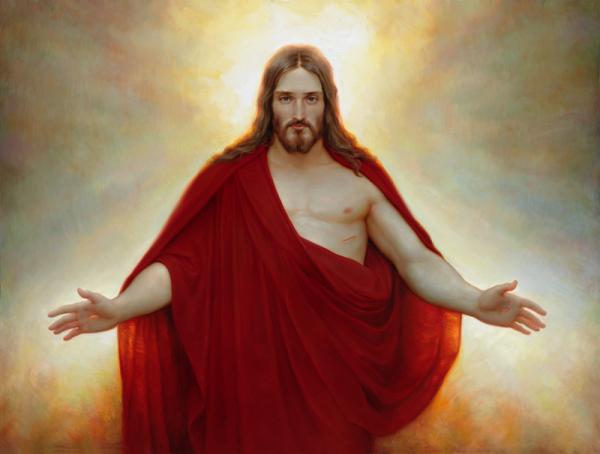
…the person who I gave up, he doesn’t even have to worry about thinking about choosing between two people, because in heaven he’ll get to have as many women as he wants. And so will my husband. But for me, I had to lay my own heart on the altar of sacrifice.
I just remember looking at that red fabric on Jesus’s robes and all of that hope, all of that shame that it dissipated, just settled back in heavier like cement. I remember thinking in my mind, how does this help me? Because in Mormon theology, men can have as many wives as they want, but women can only have one. And this man was so excited: he had solved the problem! He had solved his problem. He had solved my problem. It didn’t even occur to him that perhaps that same theology didn’t apply to me. He was so proud of himself and he kind of looked at me after it, happy like, See, we solved it, fixed it. You feel better. Can you take the calling now?
I can’t even remember what I said. I just remember being in a fog for days after that, thinking this just reinforces my worst fear which is, I just have to swallow this inequity. Not only am I alone, but I’m more alone than I ever realized before because God has figured this problem out for the men in his church, but not for the women. And so I tell that story as an example of how people in power sometimes don’t even realize that the standards that they are benefiting from don’t apply to other people. And the man that said this to me, he was a great guy. He was a nice person in the ward. He did service. I think he meant well. I don’t think he even understood the discrepancy that he was handing out to me. It would’ve never occurred to him because he’s never been confronted with the same issue. And while he thought we were equally yoked in this situation, we couldn’t be further apart. We were on opposite sides of the same theological problem. So that’s what helped start this idea of: I have to figure out this thing, I have to explore this theology. And of course I start this podcast that blows up and turns into this whole thing.
As I start doing this podcast, I do it in a chronological order, so at the very beginning you hear me, I’m very naïve and sweet being like, “Hey guys, we’re going to explore polygamy. And you know, the best disinfectant is sunlight, and we’re going to get through this!” As you hear my journey over time, you hear me sort of transform into this fire-breathing, raging feminist that I’ve become. But in the process, as we got into modern history, I started dealing with modern Mormon fundamentalists, having them talk back. I always say when you’re talking about history, talking about the dead, they don’t talk back the same way that the living do. And as I started interviewing modern Mormon fundamentalists, I have all of these people reaching out for help, reaching out with questions. Lots of people needing help, lots of people feeling less alone from their journey because of me being so public about mine. And that made me get into this world of activism. So I wanna talk about where we situate in power. I think that’s a huge component of these patriarchal structures.
I come from a Mormon tradition; like I said, it’s the air that I breathe so sorry that this is very Mormon. It’s just kind of the work that I do. But I come from seven generations of Mormons on both sides. My family history goes all the way back on all sides of straight Mormons, Mormon immigrants that came from Europe and early Mormon settlers who founded the tradition. And when we talk about patriarchy, we often use a phrase that is sort of this giant monolith that like all men are bad. White men are bad and are the cause of all the world’s ills. But I really don’t like that framing, especially since I know many good men and I’ve seen the same system that has harmed and oppressed me harm and oppressed them, albeit in different ways. To me, patriarchy is a word we use to describe this system of oppression. It’s very broad; it talks about who benefits from power and who doesn’t, and who has to force reckoning with the impact of power. Is it the people in power? Is it the people on the bottom of power? Patriarchal colonialism is a huge part of that. And in the system of patriarchy, even though I’m not a man, I’m situated in a place where I have residual benefits of power from the colonialism of my grandparents.
I want to talk about colonialism for a minute. It’s a very complicated topic. So I’m going to draw from personal examples and the areas that I know best to illustrate my point, and hopefully there can be broader applications. I come from Utah Mormon white American culture and tradition. Like I said, my ancestors were largely white Europeans who immigrated to North America in hopes for a better life. And while I do have generations of indentured servitude, poverty, slavery within my genealogy, the last three centuries and probably more within my ancestry means that by virtue of the color of our skin alone, we had more institutional access to resources than the brown bodies which my ancestors sometimes enslaved and trampled over for power. And because of that, I feel like accountability and responsibility means reckoning with that.
…I just have to swallow this inequity. Not only am I alone, but I’m more alone than I ever realized before because God has figured this problem out for the men in his church, but not for the women.
I know what it’s like to have conversations with people who have benefits that I don’t in systems, and have them be completely blind to it. I know the pain of that. I know the frustration of that. And so I’m always trying to be aware of that myself and I certainly don’t get it right. Especially over the years as I’ve had to learn this process, I’ve gotten so many things wrong and I spend more and more days being quiet and reflecting on my own situation than trying to preach to other people, because it’s so complex. I’ve gotten it wrong so many times. And I really do think the best work we can do starts with ourselves. As cliché as that sounds, that’s the work in this world. I know a lot of Mormon people, and you can count myself as one of those, that as they go through this process and you start to have injustices revealed to you that you haven’t seen before, but through more education and resources, you have an awareness of them.
There’s almost this panic of I’ve got to fix them. I’ve got to make that better. You know, we see all these people becoming life coaches and going out there and doing this stuff, when really the work that needs to be done first is internally rather than appropriating our healing onto someone else. We need to be focused on our own healing. And so I’ve sort of done that backwards sometimes. As an atonement for that, I’m just very open about my process. Early on in blogging years for Feminist Mormon Housewives, I was introduced to feminist theory. Luckily for me, I’ve had some really good mentors because when I first left traditional Mormonism, if you will, I started reading about the plight of women around the world. I think my first book that opened my eyes to that was Half the Sky: Turning Oppression into Opportunity for Women by Nicholas Kristof and Sheryl WuDunn, who co-wrote this book about the plight of women globally.
I remember being so horrified thinking, oh my gosh, there are so many injustices, there’s FGM, female genital mutilation, and stoning and all these terrible things. And why aren’t we doing something about it? And I can’t believe I didn’t know, and we have to do something about it! And so I talked before about how I, with a friend, founded what we called “Utah for Congo”, which was a way for us to raise money for women in the Democratic Republic of Congo (the DRC) where there were terrible things happening with guerilla warfare and destabilization of the region. And here I am reading about all these complex government issues over there, and this country that I know nothing about, but I know that there are mass rape, torture, and abuse of women, and I’m going to do something about it.
So I founded this organization with my friend, we start raising money for post-rape survivors in Congo, and it felt really good because we would hold 5Ks and we’d raise money, and then we would sponsor these women. And we felt like, yeah, we’re making a difference. We’re changing the world. Meanwhile, I’m not even doing my own work and unpacking the patriarchal systems in my own community. I’m still a very active Mormon at this time. I’m still participating in this system with the youth where I’m teaching young women certain ideas about women and modesty. And I have this disconnect. Finally, I think my companion (her name is Missy Jean, she’s brilliant) she got into this activism for a different reason than I did, and I think she was really concerned about my approach. And she’s wonderful, and instead of shaming me for it, she was a mentor. She gave me some history to read. And so the first book I read was King Leopold’s Ghost. It was about the history and the colonization of Congo. Basically the thrust of the book is: the destabilization that we see in a lot of these cultures and communities in the global south now are the result and aftermath of colonization from the west. So basically what would happen is white Europeans would travel around the world for resources, for wealth and gold and spices, and in Congo it happened to be rubber which was a resource at the time, especially in the progressive era as tires became more popular. And the country of Belgium didn’t want to be left behind in this whole Europe is getting wealthy off of all the global south, and they wanted to have a part in it.
To go and invade a country and take over and steal their resources is a large undertaking. And so to be able to do that, King Leopold, the king of Belgium, sold the idea on moral outrage. He got Christians, especially white Christian societies of women, to see the “horrible state of the Black African”… Look at all of these terrible things they’re doing to women down there. Look at the ways the tribes live, look at how poor they are, look at how impoverished they are. We need to do something to help them. He used missionary work as the access and the entry point into this country, which turned into this horrific system of colonization where they’re enslaving these people, they’re cutting off their hands for the rubber, they’re doing all of these horrible things. And it eventually led to the complete de-structure and destabilization of the region, which is why they’re in the state that they’re in.
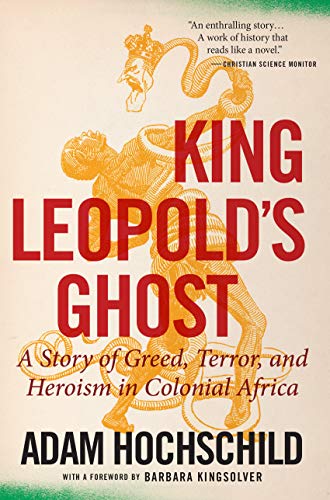
And as I was reading this history, it was like a mirror was being held up in front of me. Here I was, a white Christian lady with this moral outrage of what was happening to these Black African bodies in a region that I didn’t know anything about in a country I’d never been to. I had spoken to a few refugees from Congo in Utah, and that was about it. And it just felt so similar, that we knew that it was problematic. So of course, we turned the organization over to local folks here who know the situation, who are refugees from the community. I knew I had to rethink my approach, and thank goodness for that because it made me, for the first time, look at my own impact and the power systems I was benefiting from. And it changed the way I did activism.
So now, even though I am no longer a practicing Latter-Day Saint —I don’t adhere to a lot of the doctrine, I don’t raise my kids in it— I still feel a connection to Mormonism and Mormon heritage. People will say, “Oh, you need to move away from that. Why do you still call yourself a Mormon? Why do you still interact with these people? Just walk away.” I won’t because it’s my community. And I really do think the best we can do is work in the own corners of our world. My grandparents, their grandparents, colonized this area when they came to Utah (to what we now know is Utah) the area was inhabited by Shoshone, Goshute, Ute, Paiute, Navajo, Pahvant people that were already living here for centuries. And of course my white ancestors had a righteous cause and they felt like they were doing it righteously. When the Mormons came and invaded the Uinta Basin, they did it under this religious cause of We are going to civilize the native. It’s part of Mormon theology: Mormons believe in a large sense that native populations, indigenous populations, are what we would call ‘Lamanites’. And it was it’s our job to colonize them and to take the savagery from them and turn them to what we would call ‘white and delightsome’. And none of that theology was even prevalent to me when I was doing this earlier activism. So when I was forced to work in my own corner of my universe, in the issues that I knew, in the communities that I know, in the language that I speak, it became very horrifyingly, embarrassingly obvious to me that I had work to do.
And I still have work to do in my own space. It goes beyond reconciliation. There’s a lot of talk of, Okay, so your ancestors chose that, but you didn’t choose that. And absolutely, I didn’t choose to come to the Uinta Basin. I didn’t choose to take resources from native peoples. I didn’t choose to even grow up Mormon. But this is where I find myself. And although my family and my life —because I grew up in a patriarchal system as a woman— has set me back in some ways, and has hurt me and wounded me in some very significant ways, I still benefited in ways that a lot of my friends in the Ute tribes, Shoshone tribe, the Paiute tribe never had access to and are still dealing with. And so I feel a responsibility to be aware of the colonialism in my own choices.
…as I was reading this history, it was like a mirror was being held up in front of me. Here I was, a white Christian lady with this moral outrage of what was happening to these Black African bodies in a region that I didn’t know anything about in a country I’d never been to.
That’s all a very long convoluted way to say that my activism focuses on the corner of my own world. Now to get to the text that we’re talking about. When I started blogging about feminism, I came across a really, really incredible feminist theorist Gayatri Chakravorty Spivak. Spivak is a powerful literary theorist who works in post-colonial studies. And so because I come from a tradition of colonialism (like I said, my direct ancestors on both sides being responsible for this colonization that is now known as Utah, where I live) I’m really interested in the impact of how my living blinds me to issues that other people struggle with. That’s really important to me. And Spivak has some really, really great essays, but the one I’m going to point you to is called ‘Can the Subaltern Speak?’ It was really powerful and another one of those moments that sort of shifted my thinking into How do I root out these oppressive structures within myself? And like I said, I’m not perfect. I’m getting it wrong all the time. I grew up Mormon my whole life in a white colonial mindset. So of course I’m going to stumble along the way. But Spivak has this very heady essay, it’s very dense, but she talks about this idea of ‘subaltern’. Now in post-colonial studies, they’re talking about “how can we change the world, look at the world without imposing Western thinking onto everything?” Because right now, and especially in Mormon thought, we come from a Western culture, Western thinking, Western philosophy, Western education.
And even in the way that we approach history (which are the spaces that I navigate now when we talk about Utah history, for example), the majority of the history that we pull from is ‘documentary history’, which means historians prioritize history and they consider it credible. If you can find it documented in paper, if it’s written down, if it’s notarized, if someone put it in a book, if someone wrote it in a journal. Of course there are critical analyses of all the documents and where they position themselves, but if it’s written down we consider it credible. That’s what ‘documentary history’ is and that’s the best history has come up with in professional history. You should look at the work of Elise Boxer or Farina King, for example, they are indigenous scholars who work in the field of Mormon history and they are the ones that taught me this really important lesson that Western thinking has prioritized one kind of history and dismisses the other. So in a lot of indigenous traditions, oral history is the way that they have passed down their history. Oral history is often, especially in Western thought, dismissed as inaccurate, even though we know that you can go to India and the shamans can sing in Sanskrit identically to something done 2000 years ago. And yet, because of the way that we look at professional history now, we dismiss oral histories of indigenous folks because it wasn’t written down. And that’s just a cultural difference. That means that we are prioritizing Western thought over indigeneity.
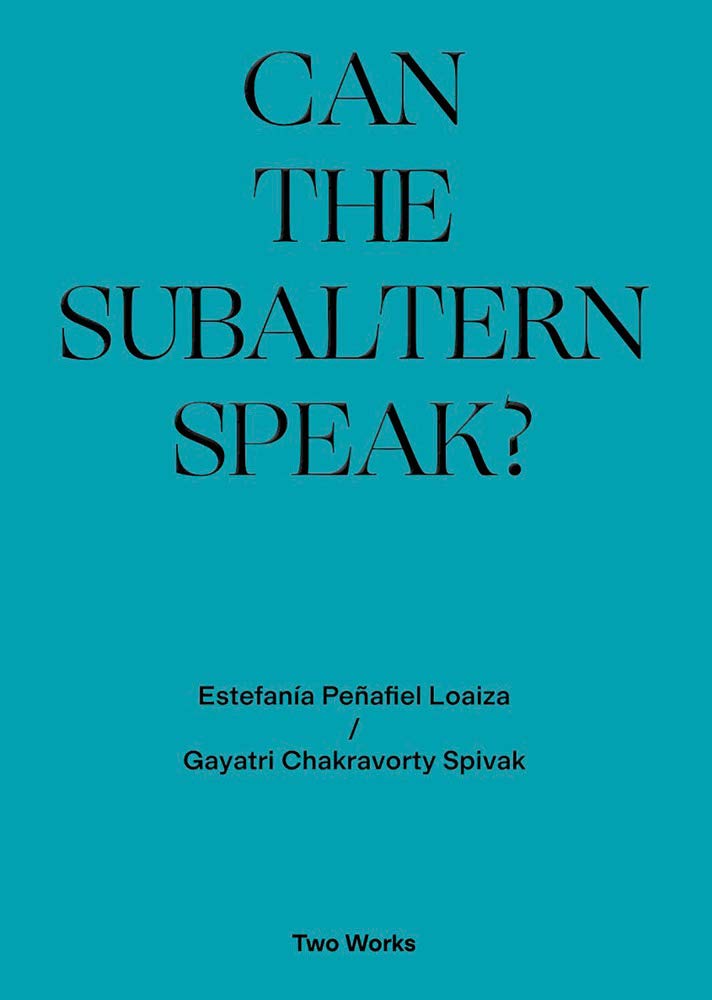
In post-colonial studies, they’re exploring some of these ideas. And Spivak talks about this idea of ‘subaltern’ and it was the first time that it occurred to me that subaltern is, and it’s a heady essay and I’m going to be very reductive and I welcome anyone to throw critiques my way at my misuse of terms or my misunderstanding, but basically this idea of subaltern is a community that doesn’t even have access to the languages that we’re speaking. There are communities still, and I would say even in America, who don’t have access to the same tools or resources or languages that we have. All of the conversation is happening with people who can read or write. If you’re having a conversation about colonialism in any way that deals with money or change or activism or legislation where the power lies, you have to be able to read and write. There are still communities today that don’t teach people to read. And Spivak talks about, you know, very isolated tribal cultures, very rural villages that don’t even have roads where you have access to them.
How do you “help” people who can’t even speak and express needs? And the essay is very much worth reading. The critiques of the essay are very much worth reading. Like I said, it’s very dense, but it will open you up to so many questions that I think are important, that everyone should ask themselves. I’ve tried to take those lessons and apply them to me. So, like I said, I now only try to work within the corners of my community that I understand. I try not to impose my ideas onto people. I have been very preachy in the past. You know, when I hear an outrage, my gut instinct is to do something about it, but I’ve had to learn the sort of sacred pause. I hear something, I hear a pain, I hear someone’s problem. And then I pause and think, where am I situated in this? And how does my help impact? In doing so, I’m going to use a community that people are very familiar with, which I would say is, I don’t know if we can count it as subaltern, but since it’s within the scope of my community, I feel comfortable talking about it: A fundamentalist sect of Mormonism that is very isolated would be known as the FLDS.
Now, of course, the FLDS (the Fundamentalist Latter-Day Saint Church) was a break off group that broke away many, many years ago. I talked about the history of on my podcast, but they still practice polygamy. And for a long time, especially in the last 20 years, they’ve been under the rule of a man named Warren Jeffs, who is now in prison on several charges. He’ll be in prison for the rest of his life, but he imposed a lot of what I would say are objectively horrific things on his community. He separated families. There’s horrible, forced marriages, underage marriages, child sex abuse. All kinds of things that we don’t have time here on the podcast to talk about. But because it’s in the Mormon realm, I’ve been able to work there. One of the very first things that happened when I started podcasting is members of the community who had been sent away from the community, or who lived there and were listening to me as an act of rebellion against their leadership, reached out and said, we need help and we don’t know what to do. I was able to leverage my resources and my platform to help. And because of the lessons that I’ve already learned, when I first got there, the instinct is, Oh my gosh, what you’re going through, what you’re surviving is so terrible: we need to rescue you from it! And there are a lot of groups that will go and try to rescue folks out of fundamentalism, meaning you can escape to them. You can leave, you can literally be pulled out of your home and taken away.
While that is a solution to a problem, it causes a lot of harm in the meantime. The FLDS, particularly under Warren Jeffs, is isolated from the internet, from reading certain texts, from music, from a lot of things. And while that prohibition doesn’t go across the board (you can talk to FLDS who did have access to those things) I’m talking about the very rural communities, the lowest in power in the FLDS. Those are the folks that I ended up working with. People that didn’t ever have healthcare, didn’t have access to schooling, who weren’t taught to read or write; those existed too. To me, that’s an almost subaltern community within the corner of my own state. The FLDS had a community called Short Creek in Southern Utah, the border of Utah and Arizona, the twin sister cities of of Colorado City, Arizona, and Hildale, Utah. There were some folks that reached out to me because, at the time in the town, even though we’re in America in the modern age, the police force was being run by the church. And so there were a few examples; for example, a young woman was assaulted by a family member. She went to the police to report it. They sent her back to her bishop to repent.
I was hearing stories like this. And of course, you know, my instinct is, Well, we just got to take you out. We got to make it stop. How do we make it stop? Because I had learned this sort of sacred pause, I learned that the rescue organizations who were doing that, which are very well-meaning…there had been a lot of blow-back. Pulling people out of their community, away from their whole system, everything they know; it can be completely traumatic. And it’s Shirley Draper, who is someone who grew up in the community and who’s an advocate down there who’s work I support, she says, it’s like cutting off your arm and bleeding out and being amputated and having everyone say, “Okay, you’re whole now! We cut off that terrible part of you. Aren’t you great?” And instead, the idea is to teach you how to reuse the arm, rather than having to ask you to amputate a part of yourself.
So my approach to these communities has always been integration. We go into the communities, we say, “What are the problems here?” We listen to folks who have lived it, who suffer it, who live the impact every day. And then we say, “What do you need?” And we get resources for them. And we let them lead the way. That’s why, Shirley Draper for example, if you wanna help the FLDS we support Cherish Families. She set up an organization there. They do a lot of good work. And that’s kind of my mode of operating. I’m sure it’s not perfect. I’m sure I’ve made plenty of mistakes along the way, but when you’re helping people, when you are rescuing people, when you’re saving people, mistakes get really, really costly. They get really pricey. We’re talking about people’s lives. And often, too often, when we help people the help is really a selfish act. It’s supposed to make us feel good. We want to feel like we’re good people. And so Spivak’s essay is really, really essential reading for people who want to make the world a better place. Look at communities and the language of power. If you are helping people, are you part of that community? Are you aware of the impact? Are you just making a career off of a community and then leaving them with the impact?
You know, the FLDS in particular deal with a lot of folks who come in and tell the stories of their community, make a living off of that, make money. You know, the reporters are the ones getting paid to talk about it, and then these people are left with the impact. And what does that mean? This is why I’m still working within the Latter-Day Saint community, even though sometimes they don’t claim me and people think I shouldn’t claim them. It’s my community. It’s the language I know. It’s the corner I know. I walk with my fundamentalist brothers and sisters and their struggle, but at the end of the day, they’re the ones that understand their problems the best. Now because of the prohibitions to power, they might not always understand what resources are available. And that’s one thing that I have tried to help with, helping find out what’s available. But at the end of the day, because of the history of power in my own life and within my own ancestry, I’m trying to be as responsible with it as possible.
So that’s what I think Spivak’s work encourages people to do. I definitely recommend that essay. I would recommend King Leopold’s Ghost. It’s a really great, and I shouldn’t say really great… it’s a horrible story written very well to help you understand some of the issues in the global south. And if you’re really interested in understanding the colonization within my community, Ned Blackhawk’s book Violence over the Land is the history of the colonization of the Americas, and it gets into the Uinta Basin. I think that’s a great place to start.
Thank you so much for Amy and for Sam for allowing me this opportunity. Hopefully I’ve pointed you into something that can help make you a more responsible activist within the own corners of your world.
Where am I situated in this?
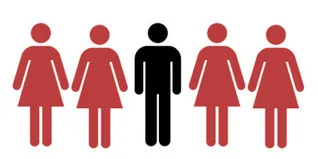
How does my help impact?
Listen to the Episode
&
Share your Comments with us below!

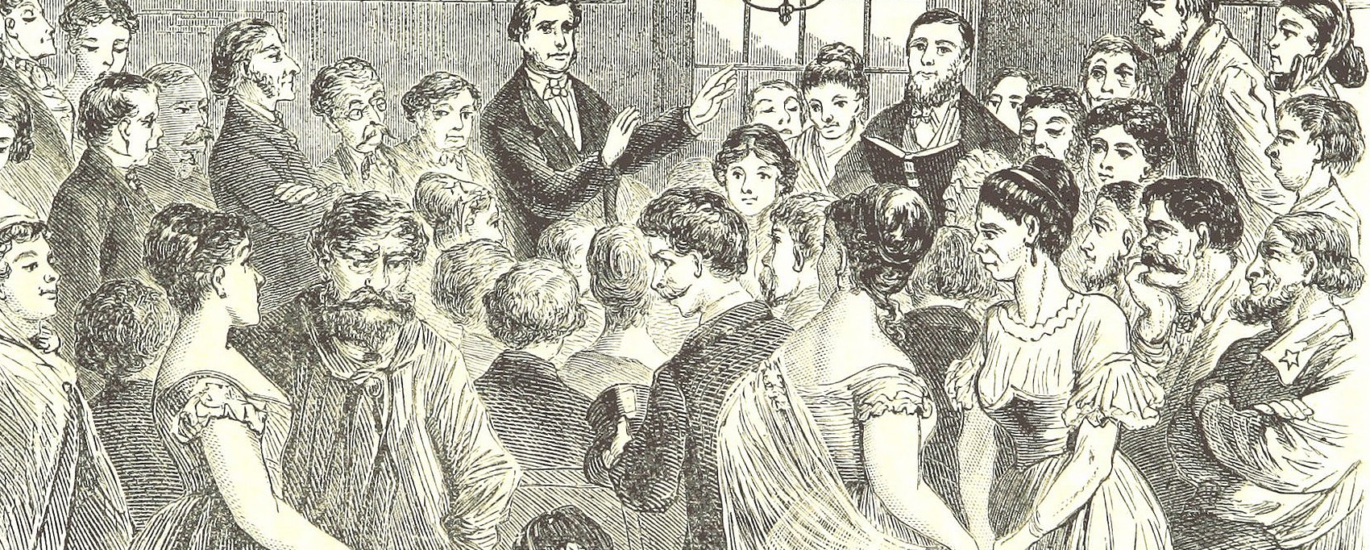




I admire Lindsay Park Hansen for her passion, intellect and the research that she has done to educate me on this patriarchal structure of the doctrine of polygamy.
Thank you Amy, for having her on your podcast.
MY EYES ARE BEGINNING TO SEE. MY EARS ARE BEGINNING TO HEAR. MY MIND IS BEGINNING TO COMPREHEND.